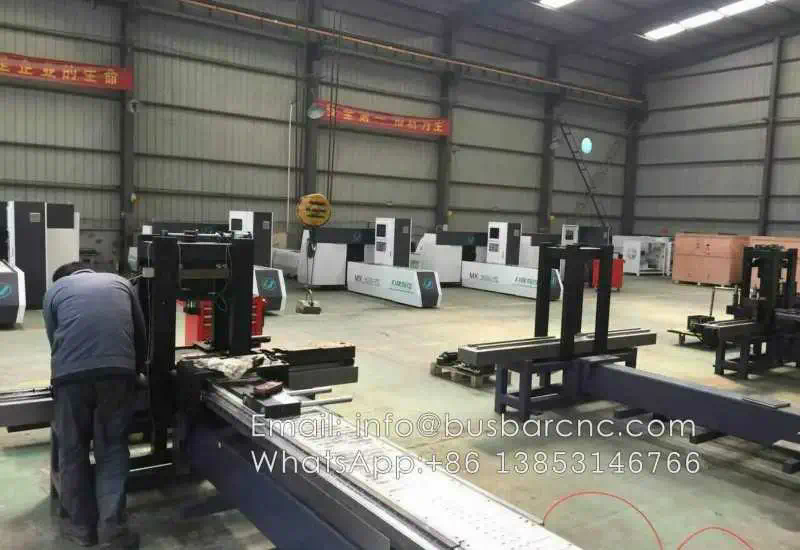CNC Technology in Medical Device Manufacturing
In the field of medical device manufacturing, CNC (Computer Numerical Control) technology plays a crucial role in producing precise and complex components that are essential for various medical devices. CNC machines have revolutionized the manufacturing process by providing high levels of accuracy, repeatability, and efficiency. This article explores the significance of CNC technology in the medical device industry and its impact on product quality, innovation, and patient care.
CNC technology enables manufacturers to produce intricate components with tight tolerances that are required for medical devices such as pacemakers, surgical instruments, prosthetics, and imaging equipment. These devices often have complex geometries and intricate features that demand precision and consistency in production. CNC machines use computer-aided design (CAD) software to convert digital designs into physical objects by controlling the movement of cutting tools with high precision. This level of automation and control ensures that each component is manufactured with the utmost accuracy, reducing the risk of human error and ensuring uniformity across production batches.
The Advantages of CNC Technology in Medical Device Manufacturing
One of the key advantages of using CNC technology in medical device manufacturing is the ability to achieve high levels of precision and accuracy. CNC machines can perform intricate machining operations with micron-level precision, ensuring that components meet the strict quality standards required for medical applications. This precision is essential for producing components that fit together seamlessly, operate reliably, and deliver consistent performance in critical healthcare settings.
Another advantage of CNC technology is its versatility and flexibility in manufacturing a wide range of components with varying complexities. CNC machines can be programmed to produce parts of different shapes, sizes, and materials, allowing manufacturers to adapt quickly to changing design requirements and produce custom components for specific medical devices. This flexibility enables faster prototyping, iterative design improvements, and customization of products to meet the unique needs of patients and healthcare providers.
Improving Efficiency and Productivity
CNC technology also improves efficiency and productivity in medical device manufacturing by reducing lead times, minimizing material waste, and optimizing production processes. CNC machines operate with high speed and accuracy, enabling manufacturers to produce components rapidly and consistently without compromising quality. This increased efficiency translates into cost savings, shorter time-to-market, and greater competitiveness in the global medical device market.
Furthermore, CNC technology allows for lights-out manufacturing, where machines can operate autonomously with minimal human intervention. This 24/7 production capability enhances productivity by maximizing machine uptime and throughput, enabling manufacturers to meet demand fluctuations and deliver products on time. Lights-out manufacturing also improves workplace safety by reducing the need for manual labor in hazardous machining environments, leading to a more sustainable and efficient manufacturing process.
Ensuring Regulatory Compliance and Quality Assurance
Quality assurance is paramount in the medical device industry to ensure that products meet regulatory requirements, adhere to industry standards, and uphold patient safety. CNC technology plays a critical role in maintaining quality control throughout the manufacturing process by providing traceability, repeatability, and documentation of production data. CNC machines can record machining parameters, inspection results, and production metrics to track the quality of components and identify any deviations from specifications.

Moreover, CNC technology enables manufacturers to implement process validation and verification procedures to demonstrate compliance with regulatory standards such as ISO 13485 and FDA regulations. By utilizing CNC machines for manufacturing, companies can establish robust quality management systems, perform risk assessments, and conduct validation testing to verify the consistency and reliability of their products. This proactive approach to quality assurance helps mitigate risks, prevent defects, and ensure the safety and efficacy of medical devices for patients.
Driving Innovation and Advancing Healthcare
The integration of CNC technology in medical device manufacturing has fueled innovation and advancements in healthcare by enabling the development of cutting-edge medical devices with enhanced capabilities and functionalities. CNC machines facilitate the production of complex components that support the miniaturization, integration, and sophistication of medical devices, leading to improved patient outcomes, reduced invasiveness, and enhanced treatment options.

Additionally, CNC technology enables manufacturers to explore new materials, design geometries, and manufacturing techniques that were previously unattainable with traditional machining methods. This innovation-driven approach allows for the creation of next-generation medical devices that are lighter, stronger, more durable, and biocompatible, contributing to the evolution of personalized medicine, minimally invasive procedures, and wearable technologies in healthcare.
Challenges and Future Trends

While CNC technology offers numerous benefits to medical device manufacturing, there are challenges and future trends that companies need to address to stay competitive and compliant in the evolving healthcare landscape. One of the challenges is the need for skilled personnel to operate and program CNC machines effectively, as the complexity of medical device components requires specialized knowledge and expertise in machining, programming, and quality control.
Another challenge is the integration of advanced technologies such as artificial intelligence (AI), machine learning, and digital twinning into CNC systems to enhance automation, predictive maintenance, and real-time monitoring of manufacturing processes. These technologies offer opportunities to optimize production efficiency, improve decision-making, and enable adaptive manufacturing strategies that can respond to dynamic market demands and regulatory changes in the medical device industry.
In conclusion, CNC technology plays a pivotal role in the manufacturing of medical devices by providing precision, efficiency, quality assurance, and innovation that are essential for delivering safe and effective healthcare solutions. As technology continues to advance and reshape the medical device landscape, companies that embrace CNC technology and leverage its capabilities will be well-positioned to drive progress, improve patient outcomes, and shape the future of healthcare delivery worldwide.
https://iflatiron.com/



